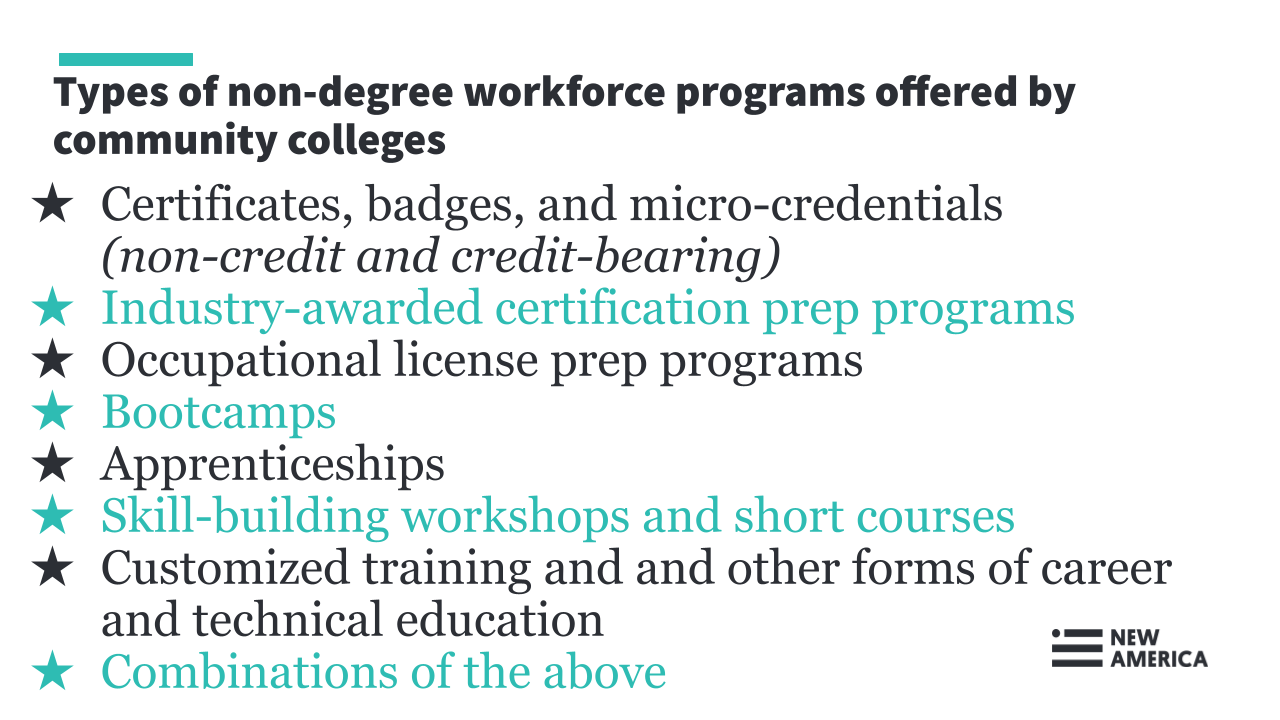Getting Non-Degree Workforce Programs Right at Community Colleges
The New Models for Career Preparation project is about accelerating high-quality, affordable, and equitable non-degree workforce programs at community colleges that lead directly to quality jobs and careers.
Collection

May 7, 2021
With support from the Lumina Foundation in 2020, the Center on Education and Labor at New America (CELNA) launched the New Models for Career Preparation Project to better understand the design, financing, and strategy principles that go into creating high-quality non-degree programs at community colleges that lead to quality jobs and careers.
Phase One of the project resulted in a 3-part brief series and a policy paper each with concrete ideas and examples for ensuring quality across all non-degree workforce programs offered by education and training providers, especially community colleges. View our December 8, 2022 launch event here.
In Phase Two of the project, currently underway, we will operationalize the ideas and examples identified in the research. Through a networked learning process and technical assistance, a cohort of fifteen community colleges are working with national experts and one another to make institutional changes that lead to concrete improvements in enrollment, persistence, and employment outcomes for workforce students.
Why non-degree programs: For this work, “non-degree programs” also known as “short-term credentials, microcredentials, or pre-degree programs” include for-credit or not-for-credit certificates, industry-award certifications, occupational license preparation programs, apprenticeships, bootcamps, badges, and other forms of career and technical education offered by community colleges.
Quality matters: Research has shown that too many non-degree programs lead to no jobs or poverty-wage jobs, especially for women and racial minorities. At the same time, there are many quality jobs and careers that do not require a bachelor's degree, and more employers are dropping degree requirements recognizing that they are not required to excel in a role and may hinder diversification strategies. We need to center quality at the core of all non-degree community college programs. This project will help accomplish that goal.

